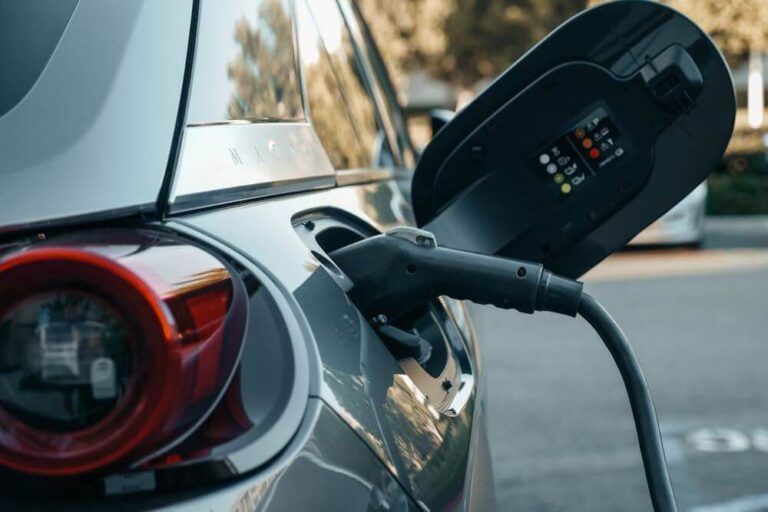The increasing demand for electric vehicles (EVs) is reshaping the landscape of transportation across the globe. As more consumers and businesses pivot to cleaner energy solutions, the need for efficient charging infrastructure becomes paramount. Advanced charging solutions for commercial and public use play a critical role in enhancing the convenience of EV drivers and in fostering greater adoption of electric vehicles. This article delves into various aspects of these advanced charging systems, examining their benefits, types, and future potential.
Understanding the Importance of Charging Infrastructure
Charging infrastructure serves as the backbone of widespread EV adoption. Without an extensive network of charging stations, the convenience factor for prospective electric vehicle users dwindles. Efficient charging solutions ensure that EV drivers can find accessible points where they can recharge their vehicles quickly and reliably.
Public charging stations, especially in urban areas, are crucial as they alleviate range anxiety among potential users, who may be hesitant to transition to electric cars due to fears about battery life. With the correct infrastructure in place, fleets of commercial vehicles can operate more efficiently, reducing their carbon footprint and operational costs. Municipalities are beginning to incorporate charging stations into their planning, seeing the strategic advantage they bring toward sustainable urban development.
Types of Advanced Charging Solutions
Various types of advanced charging solutions exist, each catering to specific needs within commercial and public domains. Fast charging stations, designed to significantly reduce charging times, are perfect for public use. These stations often utilize charging technology that enables them to provide a full charge in a fraction of the time compared to standard chargers. Level 2 chargers are commonly installed in public parking spaces and offer a reliable and efficient way to charge vehicles over extended periods. On the other hand, DC fast chargers serve a critical role in boosting the range of vehicles during longer trips.
As manufacturers strive to improve battery technology, charging speeds have seen significant advancements, making it feasible for drivers to recharge during short breaks. Stationary battery storage systems are being integrated with charging stations, allowing energy storage during low-demand periods to be released during peak usage times. This progressive approach is essential to create a robust charging ecosystem that meets the needs of all EV users.
Benefits of Advanced Charging Solutions
Advanced charging solutions present numerous benefits for both commercial entities and the public. Electric fleets enjoy lower operational costs and a diminished environmental impact compared to their gasoline or diesel counterparts. As energy prices fluctuate, the ability to recharge at optimal times significantly impacts budget management. Both businesses and cities can drive revenue through charging stations, particularly when equipped with advanced payment systems that accommodate various payment methods.
Real-time data provided by smart charging stations informs users about charger availability and energy costs, enhancing the user experience. As consumers lean toward more sustainable options, organizations that invest in advanced charging solutions will likely enjoy higher brand loyalty. Such infrastructure elements may contribute positively to local economies, attracting businesses and consumers similarly committed to eco-friendly practices.
Deployment in Commercial Fleets
The successful deployment of advanced charging solutions is particularly evident in commercial fleets. Businesses that operate electric buses, delivery vans, or taxis can optimize their charging schedules to align with operational needs. By strategically placing charging stations near depots, companies can ensure their vehicles remain charged and ready for service. Fleet managers benefit from utilizing telematics to monitor energy consumption, aiding in maintenance decisions, and optimizing routes based on charging station locations.
As electric vehicles become more prevalent in the workforce, organizations need to consider balancing their charging needs with peak energy usage to avoid unnecessary costs. The synergy between electricity providers and fleet operators is forging partnerships that encourage the development of tailored solutions for commercial use.
Public Charging Networks and Accessibility
Accessibility remains a significant focus in the deployment of public charging networks. To maximize their effectiveness, charging stations must be available in diverse locations, including urban areas, shopping centers, and highway rest stops. The growing number of charging points directly correlates to the confidence consumers have in electric vehicles.
Initiatives to standardize charging connectors and payment systems play a role in facilitating a seamless experience for users. Governments at various levels are often involved in the development of these networks, offering incentives for their installation and maintenance. Increased public accessibility ensures that EV adoption can continue to rise, leading to fewer emissions and a healthier environment.
Policy and Regulation Impacting Charging Solutions
The influence of policy on the development of charging solutions cannot be understated. Government regulations promote EV adoption through various methods, ranging from tax incentives for electric vehicle purchases to grants for charging infrastructure. Strategic initiatives focused on enhancing EV charging capabilities greatly influence market dynamics.
Public-private partnerships are increasingly common, facilitating the collaboration needed to develop charging networks efficiently. As the global push towards net-zero emissions intensifies, national and local policies are vital to shaping the future landscape of electric mobility. Stakeholders must remain informed about regulatory changes that would affect the deployment and management of charging solutions.
Advanced charging solutions represent a pivotal element for seamlessly integrating electric vehicles into everyday life, catering to the diverse needs of both commercial operators and the public. A commitment from stakeholders across sectors is essential for creating a sustainable and accessible EV ecosystem.


